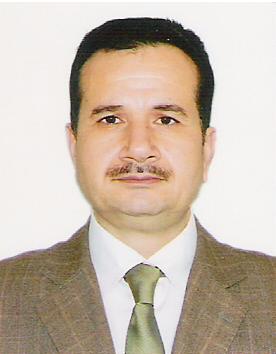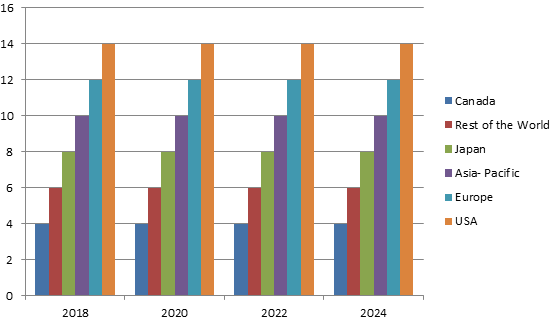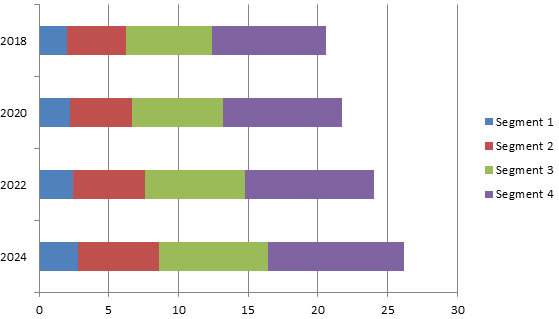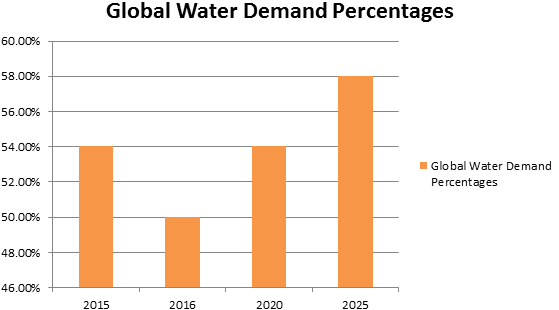Session Tracks
Track 1: Water Resource Planning and Management
Water Resources Planning (WRP) defines a holistic approach to the management of water system combining water supply, water demand, water quality, environmental protection and enhancement, rate structures, financial planning, and public participation. Water Resource Planning and Management is a subset of the more general Integrated Resource Planning (IRP) methodology. Water management is the activity of planning, developing, distributing and optimum use of water resources under defined water policies and regulations. Water resource management is the activity of planning, developing, distributing and managing the optimum use of water resources. It is a sub-set of water cycle management.
Related Water resource Conferences | Hydrology Events | Water Conferences| Environmental Conferences
3rd International Conference on Coastal Zones and Marine Ecosystems March 15-16, 2018 Singapore; 2nd Annual Congress on Environmental Pollution and Global Warming, May 24-25, 2018, Osaka, Japan; 2nd International Conference on Ecology and Ecosystems, July 11-12,2018, Toronto, Canada; World Conference on Ecology March 19-20, 2018, Berlin, Germany ; 14th International Conference on Monitoring, Modelling and Management of Water Pollution 22 - 24 May, 2018, A Coruña, Spain; 20th International Conference on Water Pollution and Treatment, May 14 - 15, 2018, London, United Kingdom; 4th International Conference on Water Resource and Environment (WRE 2018) July 17th to 21st, 2018, Kaohsiung City, Taiwan.
Water Resources, Climate, & Society Group, Environmental and Water Resources Engineering ASCE, Indian water resources society, American water resources association, Indian association of soil and water conservationists
Track 2: Biological Treatment of Waste Water
The method for advanced wastewater treatment without excess sludge according to the present invention comprises of conducting physical treatments and/or chemical treatments independently or concurrently to decompose sludge generated from a biological wastewater treatment process and an advanced wastewater treatment process, in which, for the physical treatment, at least one method is selected from mechanical decomposition, heating, freezing and defrosting, and ultrasonic irradiation methods and, for the chemical treatment, at least one method is selected from ozone, acid . Alkali, hydrogen peroxide, and enzyme treatment methods; and of injecting the decomposed sludge into an anaerobic/anoxic bioreactor of the biological wastewater treatment process and utilizes it as a carbon source for denitrification and phosphorus removal.
Related Water resource Conferences | Hydrology Events | Water Conferences| Environmental Conferences
2nd International Conference on Fluid Dynamics & Aerodynamics October 19-20, 2017, Rome, Italy; World Congress on Water Conservation and Irrigation, March 21-22, 2018, Bali, Indonesia; International Summit on Sustainable Energies, March 30-31 ,2018 Orlando,Florida,USA; 3rd International Conference on Power and Energy Engineering June 18-19, 2018 Rome, Italy; 14th International Conference on Monitoring, Modelling and Management of Water Pollution 22 - 24 May, 2018, A Coruña, Spain; 20th International Conference on Water Pollution and Treatment, May 14 - 15, 2018, London, United Kingdom; 4th International Conference on Water Resource and Environment (WRE 2018) July 17th to 21st, 2018, Kaohsiung City, Taiwan.
American Water Resources Association, American Water Works Association Water Conservation Resource Community (AWWA), Association of Water Technologies (AWT), Canadian Water Resources Association (CWRA), National Association of Flood and Storm water Management Agencies (NAFSMA), Indian Geotechnical Society Mumbai
Track 3: Biological and Environmental Engineering
Biological Engineering is an interdisciplinary area focusing on the application of engineering principles to analyse biological systems and to solve problems in the interfacing of such systems -- plant, animal or microbial--with human-designed machines, structures, processes and instrumentation. The biological revolution continues to mature and impact all of us. Human-based gene manipulation affects nearly all North American food supplies. Plants and animals are already being defined on a molecular basis. Living organisms can now be analysed, measured and "engineered" as never before. Designer “bugs” is being produced to enhance biological processes. These changes continue to redefine our research and graduate programs that continue to emphasize biological, environmental and food and Soil- Water engineering. Our connections to agriculture and food systems remain, but modern agriculture is greatly influenced by biotechnology, and our connections to agriculture reflect this fact. A basic goal is to design technology that operates in harmony with the biology of living systems. In many cases, currently available knowledge is inadequate to support engineering design of food and biological processes. Hence, greater fundamental knowledge of biology and its potential applications are also of concern to the biological engineer.
Related Water resource Conferences | Hydrology Events | Water Conferences| Environmental Conferences
2nd International Conference on Fluid Dynamics & Aerodynamics October 19-20, 2017, Rome, Italy; World Congress on Water Conservation and Irrigation, March 21-22, 2018, Bali, Indonesia; International Summit on Sustainable Energies, March 30-31 ,2018 Orlando,Florida,USA; 3rd International Conference on Power and Energy Engineering June 18-19, 2018 Rome, Italy; 14th International Conference on Monitoring, Modelling and Management of Water Pollution 22 - 24 May, 2018, A Coruña, Spain; 20th International Conference on Water Pollution and Treatment, May 14 - 15, 2018, London, United Kingdom; 4th International Conference on Water Resource and Environment (WRE 2018) July 17th to 21st, 2018, Kaohsiung City, Taiwan.
Water Resources, Climate, & Society Group, Environmental and Water Resources Engineering ASCE, Indian water resources society, American water resources association, Indian association of soil and water conservationists
Track 4: Hydrology and Hydrogeology
Hydrology is a branch of engineering that deals with the physical properties of surface freshwater, such as lakes and rivers, and with its chemical interactions with other substances. Hydrogeology is a subfield of geology (study of Earth) that, by definition, specifically addresses groundwater—water moving through tiny openings in rock and soil layers beneath the land surface. In practice, ground and surface water interact as a single system. Surface water seeps into the ground and groundwater emerges to the surface. Hydro geologists work to explain the geological effects of surface water in rivers, streams and lakes, and hydrologists lend their technical expertise to the mechanics and chemistry of moving groundwater.
Related Water resource Conferences | Hydrology Events | Water Conferences| Environmental Conferences
2nd International Conference on Fluid Dynamics & Aerodynamics October 19-20, 2017, Rome, Italy; World Congress on Water Conservation and Irrigation, March 21-22, 2018, Bali, Indonesia; International Summit on Sustainable Energies, March 30-31 ,2018 Orlando,Florida,USA; 3rd International Conference on Power and Energy Engineering June 18-19, 2018 Rome, Italy; 14th International Conference on Monitoring, Modelling and Management of Water Pollution 22 - 24 May, 2018, A Coruña, Spain; 20th International Conference on Water Pollution and Treatment, May 14 - 15, 2018, London, United Kingdom; 4th International Conference on Water Resource and Environment (WRE 2018) July 17th to 21st, 2018, Kaohsiung City, Taiwan.
Water Resources, Climate, & Society Group, Environmental and Water Resources Engineering ASCE, Indian water resources society, American water resources association, Indian association of soil and water conservationists
Track 5: Geotechnical Engineering
The process of understanding and working with soil and rock, underground water, site and structural conditions, in relation to a construction project, is known as Geotechnical Engineering. In their professional capacity, geotechnical engineers plan and design the structures for buildings, roads, embankments, canals and hundreds of other construction projects. Beyond their construction role, the geotechnical engineer will also deal with geological hazards like landslides, soil erosion and, in some extreme conditions, earthquakes. Geotechnical engineering is important in civil engineering, but is also used by military, mining, petroleum, or any other engineering concerned with construction on or in the ground. Geotechnical engineering uses principles of soil mechanics and rock mechanics to investigate subsurface conditions and materials; determine the relevant physical/mechanical and chemical properties of these materials; evaluate stability of natural slopes and man-made soil deposits; assess risks posed by site conditions; design earthworks and structure foundations; and monitor site conditions, earthwork and foundation construction.
Related Water resource Conferences | Hydrology Events | Water Conferences| Environmental Conferences
3rd International Conference on Coastal Zones and Marine Ecosystems March 15-16, 2018 Singapore; 2nd Annual Congress on Environmental Pollution and Global Warming, May 24-25, 2018, Osaka, Japan; 2nd International Conference on Ecology and Ecosystems, July 11-12,2018, Toronto, Canada; World Conference on Ecology March 19-20, 2018, Berlin, Germany ; 14th International Conference on Monitoring, Modelling and Management of Water Pollution 22 - 24 May, 2018, A Coruña, Spain; 20th International Conference on Water Pollution and Treatment, May 14 - 15, 2018, London, United Kingdom; 4th International Conference on Water Resource and Environment (WRE 2018) July 17th to 21st, 2018, Kaohsiung City, Taiwan.
Water Resources, Climate, & Society Group, Environmental and Water Resources Engineering ASCE, Indian water resources society, American water resources association, Indian association of soil and water conservationists
Track 6: Water Quality Modelling
Water quality models try to simulate changes in the pollutants concentration as they move through the environment. A pollutant entering the environment may increase or decrease its concentration due to a large variety of mechanisms. The fate of pollutants is the resultant of interactions between mass transfer and kinetic processes. All these changes are the subject of water quality modelling. Modelling is a continuous process of developing models in times parallel with the increase of the available information and knowledge about the simulation system, which more and more adequate to describe the real process. The focus here is the user to receive the basic knowledge about water quality modelling by means of introducing the purpose, type, structure and application of the water quality models.
Related Water resource Conferences | Hydrology Events | Water Conferences| Environmental Conferences
3rd International Conference on Coastal Zones and Marine Ecosystems March 15-16, 2018 Singapore; 2nd Annual Congress on Environmental Pollution and Global Warming, May 24-25, 2018, Osaka, Japan; 2nd International Conference on Ecology and Ecosystems, July 11-12,2018, Toronto, Canada; World Conference on Ecology March 19-20, 2018, Berlin, Germany ; 14th International Conference on Monitoring, Modelling and Management of Water Pollution 22 - 24 May, 2018, A Coruña, Spain; 20th International Conference on Water Pollution and Treatment, May 14 - 15, 2018, London, United Kingdom; 4th International Conference on Water Resource and Environment (WRE 2018) July 17th to 21st, 2018, Kaohsiung City, Taiwan.
Indian Water Work Association, Association of Geotechnical and Geoenvironmental Specialists, British Geotechnical Association, International Society of Soil Mechanics and Geotechnical Engineers, Indian Geotechnical Society Mumbai
Track 7: Drought Monitoring & Flood Risk Management
Today, droughts and floods are a common feature and their co-existence poses a potent threat, which cannot be eradicated but has to be managed. Transfer of the surplus monsoon water to areas of water deficit is a potential possibility. This would also help create additional irrigational potential, the generation of hydropower, as well as overcoming regional imbalances. The recurrence of drought and famines during the second half of the 19th century necessitated the development of irrigation to give protection against the failure of crops and to reduce large-scale expenditure on famine relief.
The elements of drought characterization typically include drought type, frequency, duration, magnitude (including peak magnitude), severity, and areal extent of drought occurrence. Determining one definition of drought that can be considered comprehensive is complex. Still, there is a need for the development of more accurate identification methods that are able to describe the evolution of drought conditions in space and time. Managing flood risk is the same as other forms of managing risk. It is about making judgments on what risks to reduce, to share with others, to transfer to others, to accept or to eliminate. One very effective way of managing future flood risk is by restricting development in the floodplain, as outlined by the government in Planning.
Related Water resource Conferences | Hydrology Events | Water Conferences| Environmental Conferences
3rd International Conference on Coastal Zones and Marine Ecosystems March 15-16, 2018 Singapore; 2nd Annual Congress on Environmental Pollution and Global Warming, May 24-25, 2018, Osaka, Japan; 2nd International Conference on Ecology and Ecosystems, July 11-12,2018, Toronto, Canada; World Conference on Ecology March 19-20, 2018, Berlin, Germany ; 14th International Conference on Monitoring, Modelling and Management of Water Pollution 22 - 24 May, 2018, A Coruña, Spain; 20th International Conference on Water Pollution and Treatment, May 14 - 15, 2018, London, United Kingdom; 4th International Conference on Water Resource and Environment (WRE 2018) July 17th to 21st, 2018, Kaohsiung City, Taiwan.
International Association of Hydrological Sciences (IAHS), National and Regional Hydrological Associations, American Institute of Hydrology, International Association of Hydro geologists, British Hydrological Society
Track 8: Water and Environmental Assets
Environment literally means surrounding and everything that affect an organism during its lifetime is collectively known as its environment. In another words “Environment is sum total of water, air and land interrelationships among themselves and also with the human being, other living organisms and property”. It includes all the physical and biological surrounding and their interactions. Environmental studies provide an approach towards understanding the environment of our planet and the impact of human life upon the environment. Thus environment is actually global in nature, it is a multidisciplinary subject including physics, geology, geography, history, economics, physiology, biotechnology, remote sensing, geophysics, soil science and hydrology etc.
Related Water resource Conferences | Hydrology Events | Water Conferences| Environmental Conferences
2nd International Conference on Fluid Dynamics & Aerodynamics October 19-20, 2017, Rome, Italy; World Congress on Water Conservation and Irrigation, March 21-22, 2018, Bali, Indonesia; International Summit on Sustainable Energies, March 30-31 ,2018 Orlando,Florida,USA; 3rd International Conference on Power and Energy Engineering June 18-19, 2018 Rome, Italy; 14th International Conference on Monitoring, Modelling and Management of Water Pollution 22 - 24 May, 2018, A Coruña, Spain; 20th International Conference on Water Pollution and Treatment, May 14 - 15, 2018, London, United Kingdom; 4th International Conference on Water Resource and Environment (WRE 2018) July 17th to 21st, 2018, Kaohsiung City, Taiwan.
International Association of Hydrological Sciences (IAHS), National and Regional Hydrological Associations, American Institute of Hydrology, International Association of Hydro geologists, British Hydrological Society
Track 9: Water Pollution
Normally, water contains dissolved air and a few mineral salts, which are useful rather than injurious to living organisms. However, sometimes substances harmful to living beings are present in water, in which case the water is said to be polluted. No, clear, transparent water is not necessarily pure. It may contain harmful colourless chemicals and microorganisms. Biological pollution of water is caused by the discharge of bio-wastes into water bodies. Biological pollutants are of two types—oxygen-demanding wastes and disease-causing microorganisms
Related Water resource Conferences | Hydrology Events | Water Conferences| Environmental Conferences
3rd International Conference on Coastal Zones and Marine Ecosystems March 15-16, 2018 Singapore; 2nd Annual Congress on Environmental Pollution and Global Warming, May 24-25, 2018, Osaka, Japan; 2nd International Conference on Ecology and Ecosystems, July 11-12,2018, Toronto, Canada; World Conference on Ecology March 19-20, 2018, Berlin, Germany ; 14th International Conference on Monitoring, Modelling and Management of Water Pollution 22 - 24 May, 2018, A Coruña, Spain; 20th International Conference on Water Pollution and Treatment, May 14 - 15, 2018, London, United Kingdom; 4th International Conference on Water Resource and Environment (WRE 2018) July 17th to 21st, 2018, Kaohsiung City, Taiwan.
International Association of Hydrological Sciences (IAHS), National and Regional Hydrological Associations, American Institute of Hydrology, International Association of Hydro geologists, British Hydrological Society
Track 10: Irrigation and Water Conservation
The greatest potential for water conservation/savings will be achieved by deficit irrigation strategies - management techniques which limit the total water that a crop receives with great attention to the timing as well as the amount of the applications. This will be supported by better crop selection and plant breeding for drought tolerance. Biotechnology is needed, but we believe that improved management of water offers a much greater possibility of reducing water consumption than biotechnology and breeding, at least in the short term. That said, it will take advanced irrigation technologies to fully implement deficit irrigation strategies. The resulting water savings can range from 10-50%, whereas the potential from genetic approaches alone appears to be of the order of 5-10%. The greatest yield increases from biotechnology will probably be in dry land crops where water is limited and not controllable.
Related Water resource Conferences | Hydrology Events | Water Conferences| Environmental Conferences
2nd International Conference on Fluid Dynamics & Aerodynamics October 19-20, 2017, Rome, Italy; World Congress on Water Conservation and Irrigation, March 21-22, 2018, Bali, Indonesia; International Summit on Sustainable Energies, March 30-31 ,2018 Orlando,Florida,USA; 3rd International Conference on Power and Energy Engineering June 18-19, 2018 Rome, Italy; 14th International Conference on Monitoring, Modelling and Management of Water Pollution 22 - 24 May, 2018, A Coruña, Spain; 20th International Conference on Water Pollution and Treatment, May 14 - 15, 2018, London, United Kingdom; 4th International Conference on Water Resource and Environment (WRE 2018) July 17th to 21st, 2018, Kaohsiung City, Taiwan.
Indian Water Work Association, Association of Geotechnical and Geoenvironmental Specialists, British Geotechnical Association, International Society of Soil Mechanics and Geotechnical Engineers, Indian Geotechnical Society Mumbai
Track 11: Agro-hydro-salinity
Soil salinity control relates to controlling the problem of soil salinity and reclaiming salinized agricultural land. The aim of soil salinity control is to prevent soil degradation by salination and reclaim already salty (saline) soils. Soil reclamation is also called soil improvement, rehabilitation, remediation, recuperation, or amelioration. The primary man-made cause of salinization is irrigation. River water or groundwater used in irrigation contains salts, which remain behind in the soil after the water has evaporated. The primary method of controlling soil salinity is to permit 10-20% of the irrigation water to leach the soil that will be drained and discharged through an appropriate drainage system. The salt concentration of the drainage water is normally 5 to 10 times higher than that of the irrigation water, thus salt export matches salt import and it will not accumulate.
Related Water resource Conferences | Hydrology Events | Water Conferences| Environmental Conferences
3rd International Conference on Coastal Zones and Marine Ecosystems March 15-16, 2018 Singapore; 2nd Annual Congress on Environmental Pollution and Global Warming, May 24-25, 2018, Osaka, Japan; 2nd International Conference on Ecology and Ecosystems, July 11-12,2018, Toronto, Canada; World Conference on Ecology March 19-20, 2018, Berlin, Germany ; 14th International Conference on Monitoring, Modelling and Management of Water Pollution 22 - 24 May, 2018, A Coruña, Spain; 20th International Conference on Water Pollution and Treatment, May 14 - 15, 2018, London, United Kingdom; 4th International Conference on Water Resource and Environment (WRE 2018) July 17th to 21st, 2018, Kaohsiung City, Taiwan.
Water Resources, Climate, & Society Group, Environmental and Water Resources Engineering ASCE, Indian water resources society, American water resources association, Indian association of soil and water conservationists
Track 12: Fluid Mechanics
Fluid mechanics is involved in nearly all areas of Civil Engineering either directly or indirectly. Some examples of direct involvement are those where we are concerned with manipulating the fluid. Sea and river (flood) defences; Water distribution and sewerage (sanitation) networks, Hydraulic design of water/sewage treatment works; Dams; Irrigation; Pumps and Turbines; Water retaining structures. And some examples where the primary object is construction - yet analysis of the fluid mechanics are essential Flow of air in / around buildings; Bridge piers in rivers; Ground-water flow. Notice how nearly all of these involve water.
Related Water resource Conferences | Hydrology Events | Water Conferences| Environmental Conferences
3rd International Conference on Coastal Zones and Marine Ecosystems March 15-16, 2018 Singapore; 2nd Annual Congress on Environmental Pollution and Global Warming, May 24-25, 2018, Osaka, Japan; 2nd International Conference on Ecology and Ecosystems, July 11-12,2018, Toronto, Canada; World Conference on Ecology March 19-20, 2018, Berlin, Germany ; 14th International Conference on Monitoring, Modelling and Management of Water Pollution 22 - 24 May, 2018, A Coruña, Spain; 20th International Conference on Water Pollution and Treatment, May 14 - 15, 2018, London, United Kingdom; 4th International Conference on Water Resource and Environment (WRE 2018) July 17th to 21st, 2018, Kaohsiung City, Taiwan.
Division of Fluid Dynamics - American Physical Society, Fluid Power Society of India, Indian Society of Mechanical Engineers, National Society of Fluid Mechanics and Fluid Power IIT Bombay
Track 13: Potentially Toxic Elements in Water (PTES):
Heavy metals are naturally occurring elements that have a high atomic weight and a density at least 5 times greater than that of water. Their multiple industrial, domestic, agricultural, medical and technological applications have led to their wide distribution in the environment; raising concerns over their potential effects on human health and the environment. Their toxicity depends on several factors including the dose, route of exposure, and chemical species, as well as the age, gender, genetics, and nutritional status of exposed individuals. Because of their high degree of toxicity, arsenic, cadmium, chromium, lead, and mercury rank among the priority metals that are of public health significance. These metallic elements are considered systemic toxicants that are known to induce multiple organ damage, even at lower levels of exposure
Related Water resource Conferences | Hydrology Events | Water Conferences| Environmental Conferences
3rd International Conference on Coastal Zones and Marine Ecosystems March 15-16, 2018 Singapore; 2nd Annual Congress on Environmental Pollution and Global Warming, May 24-25, 2018, Osaka, Japan; 2nd International Conference on Ecology and Ecosystems, July 11-12,2018, Toronto, Canada; World Conference on Ecology March 19-20, 2018, Berlin, Germany ; 14th International Conference on Monitoring, Modelling and Management of Water Pollution 22 - 24 May, 2018, A Coruña, Spain; 20th International Conference on Water Pollution and Treatment, May 14 - 15, 2018, London, United Kingdom; 4th International Conference on Water Resource and Environment (WRE 2018) July 17th to 21st, 2018, Kaohsiung City, Taiwan.
Association of Environmental Engineering &Science Professors, The Association of Civil &Environmental Engineers, Environmental &Water Resources Institute (EWRI), Environmental Professional Association, Association of Environmental & engineering Geologists.
Track 14: Remote Sensing and GIS for Watershed Analysis
Geographic information system (GIS) is a system designed to capture, store, manipulate, analyse, manage, and present all types of spatial or geographical data. The acronym GIS is sometimes used for geographical information science or geospatial information studies to refer to the academic discipline or career of working with geographic information systems and is a large domain within the broader academic discipline of Geo informatics. Remote sensing is the process where the Remote sensors collect data by detecting the energy that is reflected from earth. These sensors can be on satellites or mounted on aircrafts. The electromagnetic radiation is normally used as an information carrier in remote sensing. Remote sensors gather information by measuring the electromagnetic radiation that is reflected, emitted and absorbed by objects in various spectral regions, from gamma-rays to radio waves.
Related Water resource Conferences | Hydrology Events | Water Conferences| Environmental Conferences
2nd International Conference on Fluid Dynamics & Aerodynamics October 19-20, 2017, Rome, Italy; World Congress on Water Conservation and Irrigation, March 21-22, 2018, Bali, Indonesia; International Summit on Sustainable Energies, March 30-31 ,2018 Orlando,Florida,USA; 3rd International Conference on Power and Energy Engineering June 18-19, 2018 Rome, Italy; 14th International Conference on Monitoring, Modelling and Management of Water Pollution 22 - 24 May, 2018, A Coruña, Spain; 20th International Conference on Water Pollution and Treatment, May 14 - 15, 2018, London, United Kingdom; 4th International Conference on Water Resource and Environment (WRE 2018) July 17th to 21st, 2018, Kaohsiung City, Taiwan.
Geoscience and Remote Sensing Society, American Society for Photogrammetry and Remote Sensing, Indian Society of Remote Sensing, Imaging and Geospatial Information Society, Japan Society of Photogrammetry and Remote Sensing (JSPRS). Environmental and Water Resources Engineering | ASCE
Track 15: Water Economic & Policy
This session attempts to provide a conceptual basis for understanding water policy interventions while examining the circumstances under which water policies work or fail. It comprises three parts: the first examines the relationship between the water sector and the overall economy; the second explains the social, physical and economic nature of water; the third assesses the advantages and disadvantages of broad alternative approaches to public water policy and also reviews policy issues related to the economic organization of water resource management
Related Water resource Conferences | Hydrology Events | Water Conferences| Environmental Conferences
3rd International Conference on Coastal Zones and Marine Ecosystems March 15-16, 2018 Singapore; 2nd Annual Congress on Environmental Pollution and Global Warming, May 24-25, 2018, Osaka, Japan; 2nd International Conference on Ecology and Ecosystems, July 11-12,2018, Toronto, Canada; World Conference on Ecology March 19-20, 2018, Berlin, Germany ; 14th International Conference on Monitoring, Modelling and Management of Water Pollution 22 - 24 May, 2018, A Coruña, Spain; 20th International Conference on Water Pollution and Treatment, May 14 - 15, 2018, London, United Kingdom; 4th International Conference on Water Resource and Environment (WRE 2018) July 17th to 21st, 2018, Kaohsiung City, Taiwan.
Water Resources, Climate, & Society Group, Environmental and Water Resources Engineering ASCE, Indian water resources society, American water resources association, Indian association of soil and water conservationists
















